Barbie, the Bible and Jesus
A neon pink remix of ancient wisdom... and why nostalgia can't fix everything
Barbie is not a modern commentary on the sad state of gender relations. Nor is it about the existential crisis faced by the feminist movement. And it definitely isn’t about how capitalist consumption can create a facade of virtue while perpetuating the shallowness of an economic system that produced Barbie, as seen through a Žižekian lens.
Very simply, Barbie is about humanity’s fall from grace, and how we ought to redeem ourselves by doing God’s work as earthly beings. Yes, Barbie is an allegory of the book of Genesis. Just because a bible is clothed in a neon pink cover, does not mean that it does not contain what is good and true.
Barbieland as the Garden of Eden
The Barbie dreamworld that Barbie and Ken live in represents the land of edenic bliss, where thoughts of “death” and “cellulite” are unheard of and echo the forbidden fruit of knowledge. Even Ken, who is ironically subordinate to Barbie, seems to enjoy doing his job, which is “just beach”, while vying for Barbie’s attention.
Not surprisingly, Barbie and Ken are unable to have sexual relations, as they are innocent and childlike in nature. This is evident when barbie invited Ken to her giant blowout dance party and he propositions to ‘stay over’ at barbie’s house after the party.
Ken: I thought I might stay over tonight.
Barbie: Why?
Ken: Because we’re girlfriend and boyfriend.
Barbie: To do what?
Ken: I’m not actually sure.
That very scene reinforces their lack of biology and sexual drives, which further become apparent when Ken and Barbie announce that they have no private parts to a group of construction workers in the real world: “I do not have a vagina and he does not have a penis. We have no genitals” Barbie says.
Innocence lost: Weird Barbie as the Serpent
Weird Barbie: You can go back to your regular life, and forget any of this ever happened [the high heel]. Or you can know the truth about the universe [Birkenstoncks].
Barbie: The first one. The high heel.
Weird Barbie: No. we’ll do a redo. You’re supposed to want to know. OK? Do it again. The choice is now yours.
There is a scene where Weird Barbie makes Stereotypical Barbie choose between a pair of sparkly high-heels and Birkenstock sandals. Barbie initially chooses the high heels, but Weird Barbie convinces her to pick the Birkenstocks. Many interpretations compare this scene to the Matrix’s red vs. blue pill. But it makes more sense to view Weird Barbie as the Serpent convincing Eve to ‘bite’ the apple from the Tree of Knowledge, which resulted in Adam and Eve’s expulsion from Eden (i.e. Barbieland).
Although Ken did not choose the Birkenstocks with Barbie, he follows her into the real world by literally hiding in the backseat of her car, as she crossed through the membrane that separated Barbieland from reality. Barbie's choice to seek the “truth about the universe” represents the tension between finite human existence and the infinite potential of knowledge, similar to the temptation faced by Eve with the Serpent.
Ecclesiastes and the Retvrn to patriarchy
After experiencing the real world and witnessing the feats of men in various fields, Ken attempts to establish patriarchy back in Barbieland. In a manner reminiscent of the teacher in Ecclesiastes, Ken attempts to re-create his own interpretation of Eden (Ecclesiastes 2:4-6). He wages a war against the Barbies, and transforms Barbie's dreamhouse into a mojo dojo casa house, essentially a mancave where he and his bros are served by a cadre of sexy Barbie barmaids… a portrayal that resonates with the “harem” and "delights of a man's heart" found in Ecclesiastes 2:8.
Ken’s actions evoke a nostalgia for an older time, when “men used to go to war” and just “ride horses”. But just like the teacher in Ecclesiastes, Ken, too, ultimately discovers the emptiness of his pursuits. “The patriarchy doesn’t interest me anymore” he says resignedly “when it doesn’t involve horses”.
Indeed, after gaining knowledge and experience in the real world, Barbie and Ken were unable to sustain their peaceful lives together back in Barbieland. Instead, they must both battle earthly challenges such as inept corporate executives, sexual harassment, fascism, and the worship of money.
Ok, Barbie is about the Bible… so what?
Barbie isn’t a literal remake of Genesis… it’s an allegorical interpretation of Genesis, infused with slapstick humour, whimsy and silliness. Genesis is one of the oldest stories in the Bible and just like the Barbie movie, it isn’t “feminist” or “anti-feminist”. It’s merely a reflection on the human condition after the downfall of man and woman.
The futility of Nostalgia and RETVRN
There is a scene where the Mattel executives attempt to put Barbie back into her box by tying her hands up with wired strings, so that she can be restored to a pristine 'mint' state, essentially retracing her steps to Barbieland. But Barbie's escape from the box represents the impossibility of gaining back innocence and ignorance after leaving Eden. We yearn to revert to a simpler, controlled, and idealised state like Eden but we cannot.
We are given a foretaste of this in a scene where Barbie meets an old lady at the bus stop. In a somewhat random, bittersweet moment she tells the old lady “You’re so beautiful,” before shedding a tear. Perhaps Barbie is subconsciously accepting that the return to Barbieland is an illusion — she needs to grow up. Greta Gerwig has herself said that this scene is the “heart of the movie” despite its lack of purpose in driving the plot forward at all.
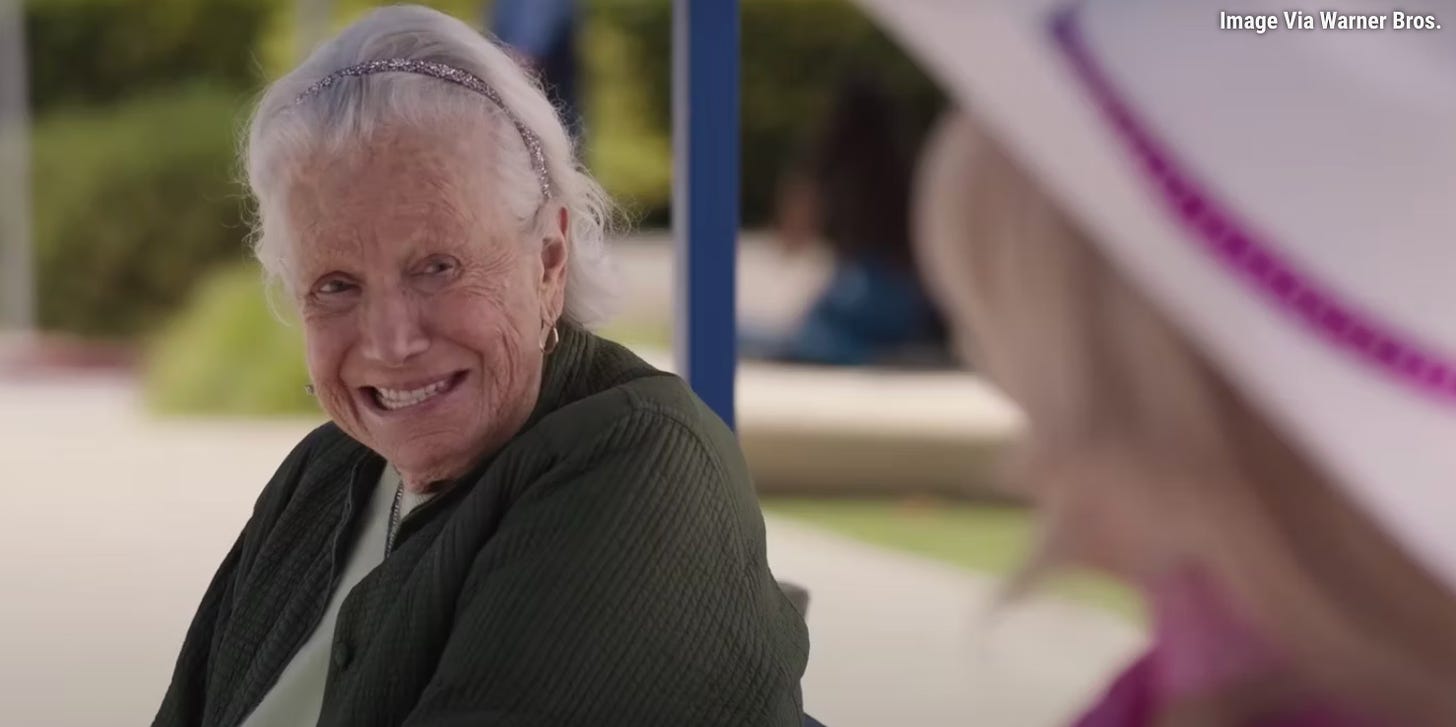
Doing her creator’s work
And in the final scenes, Barbie has a solemn one-on-one with Ruth, her "Creator". Ruth says that “Humans only have one ending. Ideas live forever”. God has put eternity in our hearts, but we have finite lives and a keen awareness of our mortality. God’s word is forever, while humans are appointed to die once (Hebrews 9:27).
So what should we make of all this?
In the Bible, human beings are created in the image of God and are called to collaborate with God in his work, actively participating in the unfolding of history. When Barbie said "I want to be a part of the people that make meaning, not the thing that is made" she is starting to yearn for an earthly life that involves actively participating with other fellow humans to do her Creator’s work.
After Barbie understands that she is Ruth’s creation, she realises that her work must be done on Earth, rather than in the Barbieland utopia (i.e. the Garden of Eden). The very final scene shows her visiting the gynaecologist. This symbolises her reconciling with her biology, and hence her mortality. Barbie has finally accepted her earthly life.
Jesus himself could have resided in Eden, but he didn’t. He hung out with earthly beings and ultimately sacrificed himself for us. Our longing to return past eras, whether our childhood, teenage years, or even epochs a thousand years distant when life seemed simpler/nicer, is ultimately in vain. It’s not a very Christian thing to do either. So stop it.

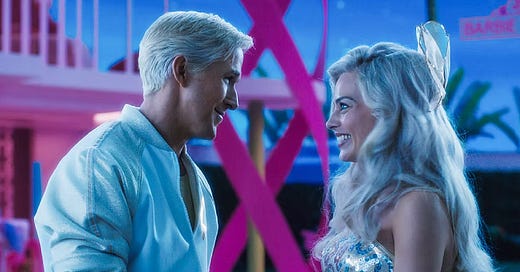


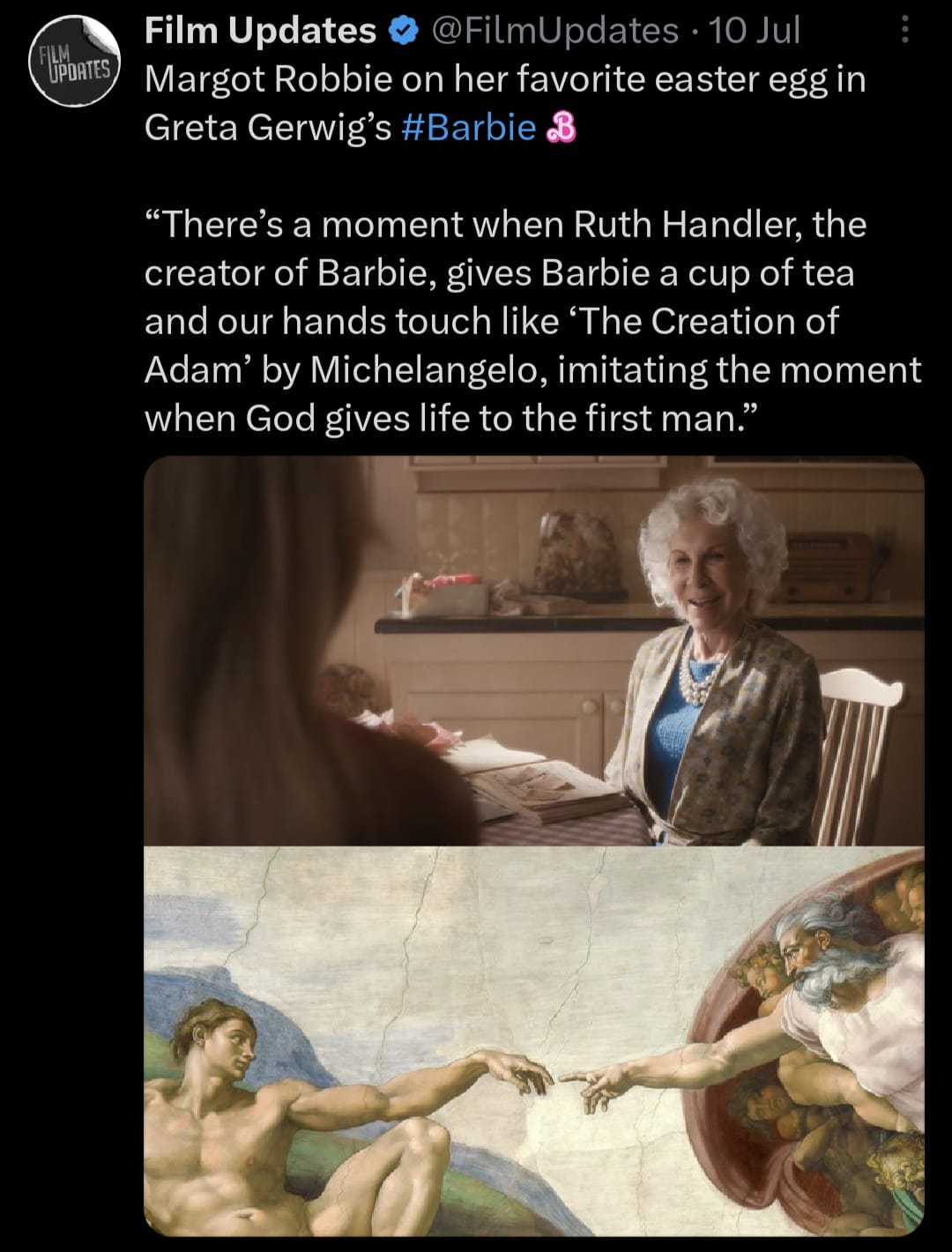

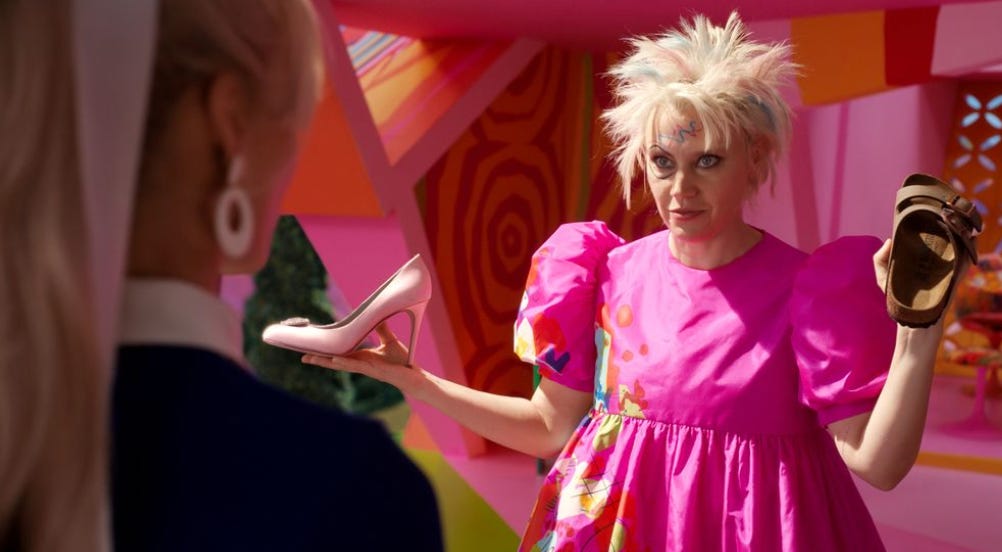


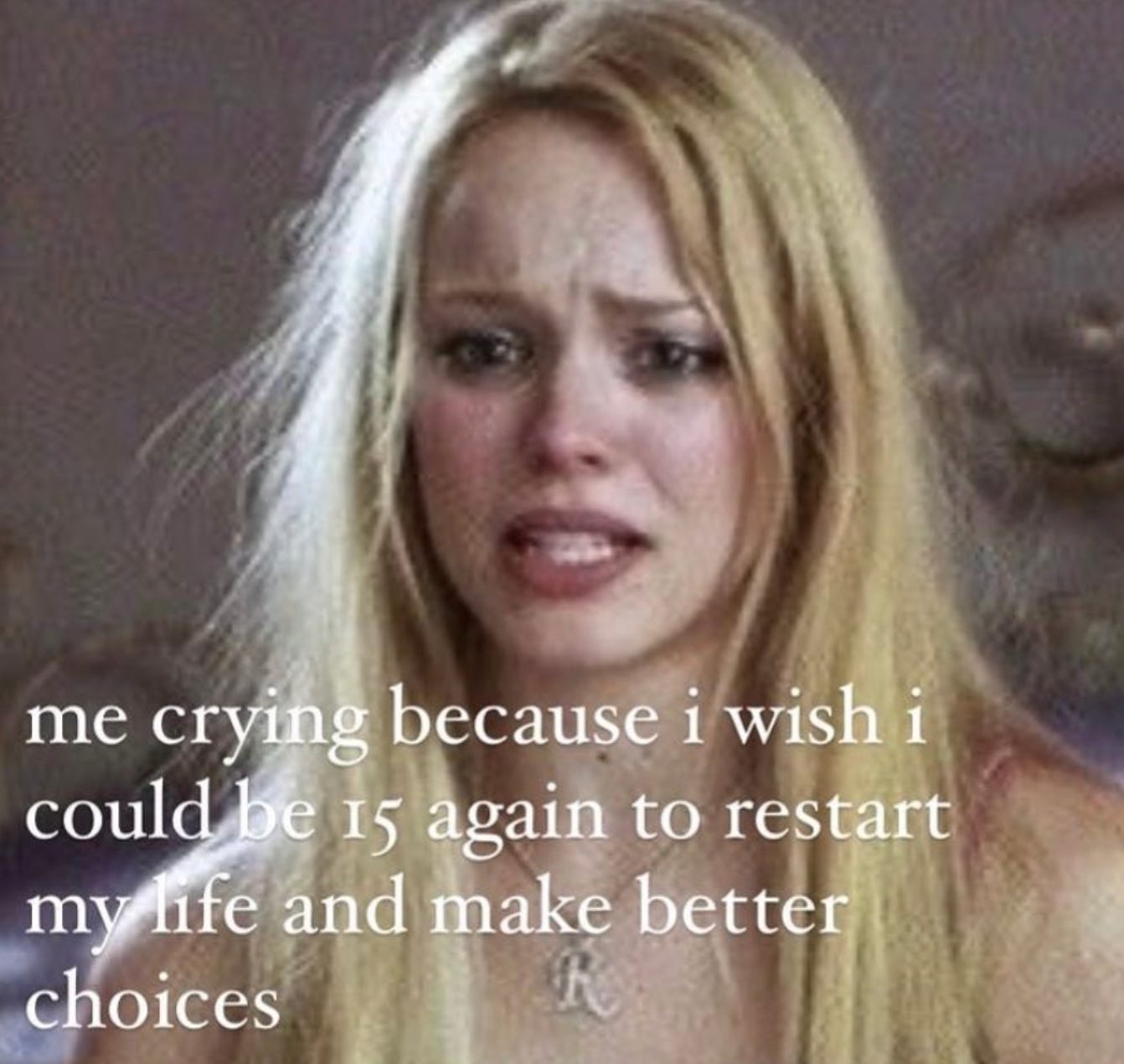
holy shit
Read this with someone and it inspires her to write her own barbie commentary